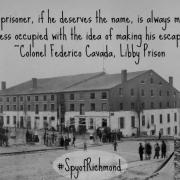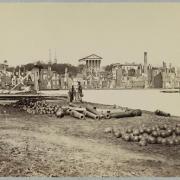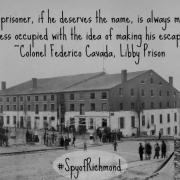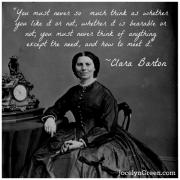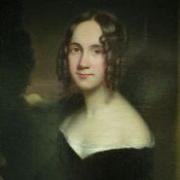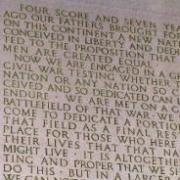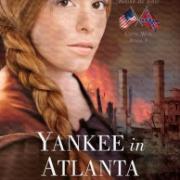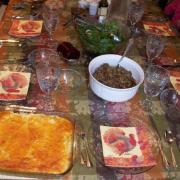Victorian women turned to Godey's Lady's Book for fashion plates and advice for women on cooking, literature and morality. (See a page from the magazine at this blog post.) But the elderly editor of the women's magazine, Sarah Josepha Hale, had more than hoop skirts and parasols on her mind.
[[{"type":"media", "view_mode":"media_large", "fid":"920", "attributes":{"class":"media-image wp-image-2586 size-full", "typeof":"foaf:Image", "style":"", "width":"550", "height":"367", "alt":"godeysfashions"}}]] From Godey's Lady's Book
At the age of 74, Hale wrote a letter to Lincoln on September 28, 1863, urging him to have the "day of our annual Thanksgiving made a National and fixed Union Festival." (Click on the image at left for a larger view.) She explained, "You may have observed that, for some years past, there has been an increasing interest felt in our land to have the Thanksgiving held on the same day, in all the States; it now needs National recognition and authoritive fixation, only, to become permanently, an American custom and institution." Hale had been advocating a national thanksgiving date for 15 years as the editor of Godey's Lady's Book. (The portrait of Hale, below, was done when she was 43 years old.)
Yes, the Pilgrims and Native Americans celebrated their harvest with a day of thanksgiving in 1621. George Washington proclaimed Nov. 26, 1789, as a national day of thanksgiving, as well. Since then, each state scheduled its own Thanksgiving holiday at different times, mainly in New England and other Northern states. But President Lincoln agreed with Hale's recommendation and responded to her request almost immediately, unlike several of his predecessors, who ignored her petitions altogether.
On October 3, 1863, Lincoln issued his Thanksgiving Proclamation, for the first time setting aside the last Thursday in November as a National Day for giving thanks, setting the precedent for the annual holiday we will celebrate tomorrow. The text of this Proclamation is below.
The year that is drawing toward its close has been filled with the blessings of fruitful fields and healthful skies. To these bounties, which are so constantly enjoyed that we are prone to forget the source from which they come, others have been added which are of so extraordinary a nature that they can not fail to penetrate and soften even the heart which is habitually insensible to the ever-watchful providence of Almighty God.
In the midst of a civil war of unequaled magnitude and severity, which has sometimes seemed to foreign states to invite and to provoke their aggression, peace has been preserved with all nations, order has been maintained, the laws have been respected and obeyed, and harmony has prevailed everywhere, except in the theater of military conflict, while that theater has been greatly contracted by the advancing armies and navies of the Union. Needful diversions of wealth and of strength from the fields of peaceful industry to the national defense have not arrested the plow, the shuttle, or the ship; the ax has enlarged the borders of our settlements, and the mines, as well as the iron and coal as of our precious metals, have yielded even more abundantly than heretofore. Population has steadily increased notwithstanding the waste that has been made in the camp, the siege, and the battlefield, and the country, rejoicing in the consciousness of augmented strength and vigor, is permitted to expect continuance of years with large increase of freedom.
No human counsel hath devised nor hath any mortal hand worked out these great things. They are the gracious gifts of the Most High God, who, while dealing with us in anger for our sins, hath nevertheless remembered mercy. It has seemed to me fit and proper that they should be solemnly, reverently, and gratefully acknowledged, as with one heart and one voice, by the whole American people. I do therefore invite my fellow-citizens in every part of the United States, and also those who are in foreign lands, to set apart and observe the last Thursday of November next as a day of thanksgiving and praise to our beneficent Father who dwelleth in the heavens.
And I recommend to them that while offering up the ascriptions justly due to Him for such singular deliverances and blessings they do also, with humble penitence for our national perverseness and disobedience, commend to His tender care all those who have become widows, orphans, mourners, or sufferers in the lamentable civil strife in which we are unavoidably engaged, and fervently implore the imposition of the Almighty hand to heal the wounds of the nation and to restore it, as soon as may be consistent with the divine purpose, to the full enjoyment of peace, harmony, tranquillity, and union. In testimony whereof I have hereunto set my hand and caused the seal of the United States to be affixed. Done at the city of Washington, this 3d day of October, A.D. 1863, and of the Independence of the United States the eighty-eighth.
Source: Collected Works of Abraham Lincoln, edited by Roy P. Basler. Rutgers University Press, 1953. May you all have a truly happy Thanksgiving this year!

